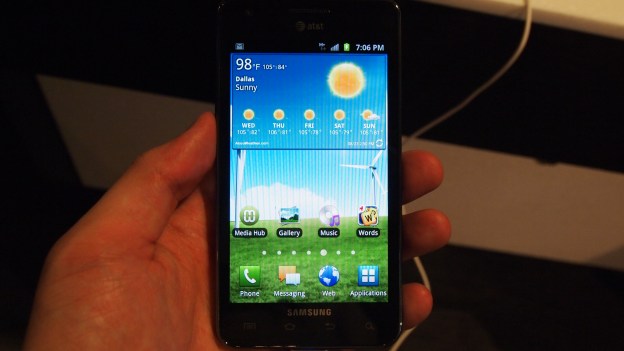 Google’s dream of making a free and open mobile operating system is starting to look like a nightmare. Today Samsung and Microsoft announced that they have come to an agreement that will result in Samsung paying Microsoft a royalty on every Android device it sells – both phones and tablets.. While it is still true that no one has to pay Google to put Android on their phone or tablet it seems as though they will have to pay Microsoft. Neither company has said which patents are specifically being infringed upon.
Google’s dream of making a free and open mobile operating system is starting to look like a nightmare. Today Samsung and Microsoft announced that they have come to an agreement that will result in Samsung paying Microsoft a royalty on every Android device it sells – both phones and tablets.. While it is still true that no one has to pay Google to put Android on their phone or tablet it seems as though they will have to pay Microsoft. Neither company has said which patents are specifically being infringed upon.
Microsoft has already made similar royalty deals with several other Android device makes, most notably among them is HTC. Samsung and HTC account for over half of all the Android phones sold in the U.S. over the past year. The most notable company that has not signed a deal with Microsoft is Motorola who is the third largest Android maker in the U.S. With Google buying Motorola, we don’t see a royalty agreement being made any time soon between Microsoft and Motorola either.
The reason Android device makers are signing deals with Microsoft is pretty simple, because they don’t want to be sued. In an interview Microsoft’s general counsel, Brad Smith said, “So far we have not seen a single Android device that does not infringe on our patents.” In order to protect themselves from being sued by Microsoft, and ultimately paying more these companies are cutting hedging their bets and paying Microsoft upfront. There has been no official word from Microsoft, Samsung, or HTC as to what patents in particular are being infringed upon, but Microsoft has a history of infringement cases against Linux-based products. Seeing how Android is based on Linux it seems likely that this is at least one area of contention, but there could be other issues as well.
It is rumored that HTC’s royalty deal with Microsoft is for around $5 per Android device sold, so it would be safe to assume that Samsung’s agreement is in that area too. Part of Samsung’s agreement is the company’s continued support of Microsoft phones, which basically means that Samsung now is agreeing to keep making Windows Phone devices. In a report released earlier this year it was estimated that Microsoft is making more money from HTC selling Android phones than it is selling its own WP7 devices.
Samsung has already sold over 10 million Galaxy S II devices worldwide even before launching in the United States, so as it looks right now Microsoft stands to make a bunch of money once the Galaxy S II is widely available on multiple U.S. carriers.
Ultimately all these companies are going to keep making Android devices because that is what everyone is buying, so we don’t think Android is going anywhere in the short or long term. If companies have to pay Microsoft for both Android and WP7 devices we can see them giving more attention to WP7 devices in the future.
Editors' Recommendations
- Every Android tablet we’re expecting in 2024
- How to try Samsung’s Galaxy AI on any iPhone or Android phone
- Google Pixel 7 Pro vs. Samsung Galaxy S22 Ultra: Who wins Android smartphone battle?
- Samsung’s poor S21 sales are an Android flagship problem
- Samsung’s Galaxy Tab S7 makes the best of a bad situation among Android tablets


